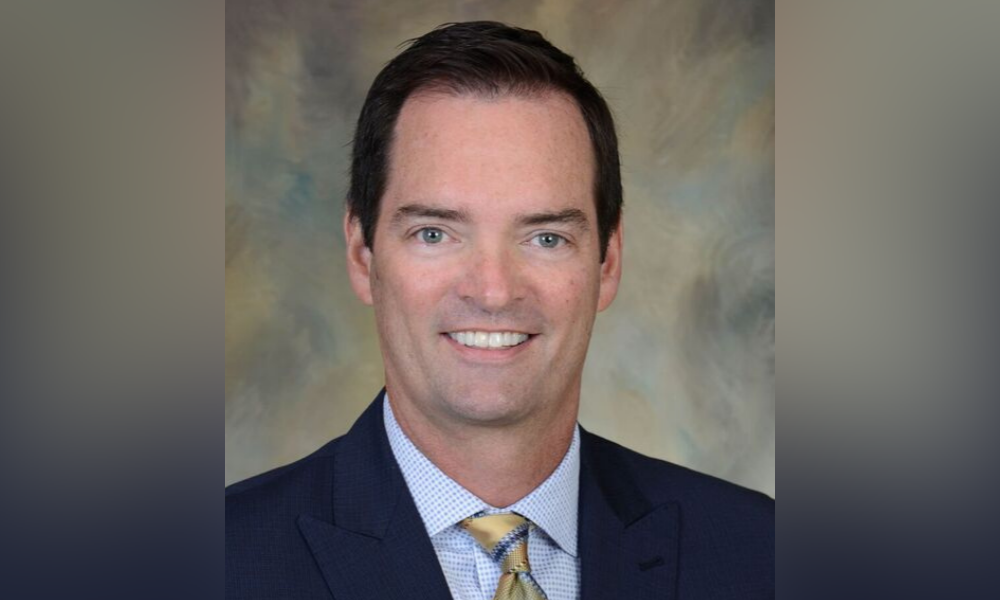Hundreds of originators moving to broker channel, but not everyone can do non-qualified mortgage loans

More than 500 new brokers have been approved by non-QM specialist Angel Oak since May this year, reflecting the product’s growing appeal among originators, the company’s executive vice president of production Tom Hutchens (pictured) has said.
The Atlanta-based company has approved a total of 522 new accounts with brokers in the last six months, it has emerged.
Hutchens said the firm had detected a trend over the last year of originators moving to the broker channel. “They may have worked for a bank or a big lender, working as loan officers under an umbrella of a larger firm in most cases, and we’re seeing them breaking off and starting their own broker shops.”
He said originators understood that to be a successful broker they had to offer a variety of products, and that non-QM was another “critical tool in their belt”.
He added: “What’s interesting now is that those broker shops are bringing Angel Oak and non-QM into the mix right out of the gate. And we’re able to see that because they have to apply to become an approved broker with us.”
Read more: Debunking the myths surrounding non-QM
Hutchens explained that a growing number of Angel Oak’s brokers were new to the business, reinforcing the theory that non-QM lending was now viewed “as the differentiator in the market”.
The reason for that, according to Hutchens, was that brokers were competing in a market hit by shrinking agency volume, resulting in margin compression.
According to the latest forecast by the Mortgage Bankers Association (MBA), next year refinance originations are expected to drop by 62%. However, purchase originations are forecast to rise 9% to a record of $1.73 trillion in 2022.
Hutchens said: “Competitiveness is increasing by the day when there’s fewer loans, as there’s still the same number of lenders competing. That’s a difficult space for brokers to compete in, but non-QM is a different (type of) product.”
According to market analyst S&P Global, non-QM lending is expected to reach $25 billion this year, surpassing the previous record of $22 billion set in 2019. Jumbo credit availability has also increased by almost 6% in the last three months - the highest level since March 2020, according to data from the MBA.
Angel Oak itself achieved $1.1 billion in non-QM originations in Q3, while in July, the company reached a milestone when it hit $10 billion in total non-QM funding since its founding in 2013.
Hutchens said he believed the potential market for non-QM could be much higher and reach $300 billion annually, given that a large percentage of non-QM borrowers are self-employed people.
While in 2010, the number of new business reached 2.5 million, in 2020 that number swelled to 4.35 million – a whopping 74% increase, according to business data issued by Angel Oak. It is also a 24.1% increase compared to 2019.
Read more: "All the momentum seems to be building in non-QM" says Angel Oak EVP
He said that non-QM was about “providing a solution” to the borrower, because brokers could “not go on 10 different websites to get a better rate”.
He said: “It’s a completely different mindset - non-QM borrowers are not so worried about rates.
“You’re providing a solution for that borrower to buy that dream house that they want to buy, and if the rate is a little higher than Agency, they’re happy to have an option to buy that house because they have likely been denied by a lender who does not offer non-QM.”
He pointed out that between 25% and 30% of Angel Oak’s non-QM loans were more complex because they had “some type of exception”, as they had “a story behind the borrower”.
These “storied loans” were unique and could not be assessed in the standard agency way. He said: “We dive deeper than just the data; we look at the whole scenario of the borrower and determine whether or not it’s a good loan for us to make.”
Hutchens added: “I caution originators and brokers all the time that you have to be sure you’re working with experts in the space because it does take a high level of expertise to underwrite and close non-QM loans.
“It’s got to be efficient, but you have to be efficient in a manual way - and that can be a challenge for agency lenders.”


